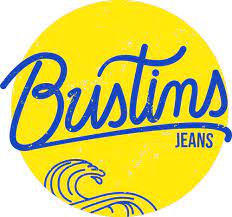In recent years, the fashion industry has experienced a significant shift towards more conscious and sustainable practices, and "Slow Fashion" has emerged as a pivotal movement. Slow Fashion is an ethical and eco-friendly approach that encourages consumers to be mindful of their fashion choices, promoting long-lasting, high-quality garments, and reducing the environmental impact of the industry. In this article, we will delve into the essence of Slow Fashion, its principles, and the positive impact it has on the world.
Defining Slow Fashion
Slow Fashion is the antithesis of the fast-paced, throwaway culture that has dominated the fashion industry for decades. It emphasizes quality over quantity, encouraging consumers to invest in timeless pieces that are durable and versatile. The movement encourages transparency and accountability in the supply chain, from sourcing raw materials to manufacturing and distribution. Slow Fashion also considers fair wages, ethical working conditions, and artisanal craftsmanship, ensuring that fashion plays a role in promoting social justice and human rights.
Key Principles of Slow Fashion
-
Sustainable Materials: Slow Fashion advocates the use of eco-friendly and sustainable materials, such as organic cotton, hemp, and recycled fabrics. These materials reduce the environmental impact of clothing production, minimizing water usage, toxic chemicals, and carbon emissions.
-
Ethical Production: The movement focuses on fair labor practices and safe working conditions for garment workers. It seeks to eliminate exploitation and promotes respect for human rights within the fashion supply chain.
-
Longevity and Durability: Slow Fashion encourages consumers to buy durable, well-crafted garments that stand the test of time. Investing in quality pieces reduces the need for frequent replacements, reducing overall clothing waste.
-
Local and Artisanal Production: Supporting local artisans and small-scale producers is a core principle of Slow Fashion. Emphasizing craftsmanship and traditional techniques not only preserves cultural heritage but also reduces the carbon footprint associated with global transportation.
-
Minimal Waste: Slow Fashion discourages excess inventory and waste. Brands are encouraged to create on-demand or limited-edition collections to minimize unsold stock and discarded garments.
The Positive Impact of Slow Fashion
-
Environmental Benefits: By promoting sustainable materials and reducing waste, Slow Fashion helps to conserve natural resources, protect biodiversity, and mitigate the negative effects of the fashion industry on the environment.
-
Social Responsibility: Emphasizing fair wages and safe working conditions ensures that garment workers are treated ethically and with respect, contributing to the improvement of labor standards globally.
-
Consumer Awareness: Slow Fashion encourages consumers to be more mindful of their clothing choices, fostering a shift towards responsible consumption and reducing impulsive buying behaviors.
-
Economic Support: Supporting local artisans and small businesses bolsters local economies and preserves cultural traditions, fostering a more diverse and inclusive fashion landscape.
Conclusion
Slow Fashion represents a fundamental shift in the way we perceive and interact with fashion. By embracing sustainability, ethics, and a focus on durability and craftsmanship, this movement paves the way for a more conscious and responsible fashion industry. As consumers, we hold the power to drive change by making informed choices and supporting brands that align with the principles of Slow Fashion. Let us embrace this movement, not only for its style and elegance but also for the positive impact it can have on the planet and society as a whole. Together, we can shape a brighter and more sustainable future through Slow Fashion.


No comments yet